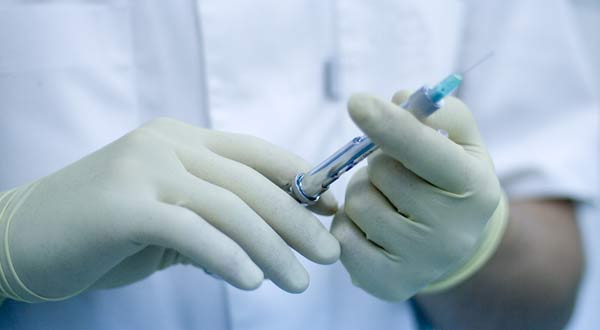Chronic Lymphocytic Leukemia Drug Treatment Shows Promise

An experimental drug, called ibrutinib, shows promise treating elderly patients with chronic lymphocytic leukemia, according to preliminary findings from a phase I/II clinical trial.
Clinical trial results do not always hold up in later studies.
Chronic lymphocytic leukemia (CCL) is the most common type of leukemia. Some 16,000 new cases arise annually in the United States. About 4,600 Americans die each year of the CCL, which is incurable. In the trials, the oral agent was found to have “few side effects and a high one-year survival rate in older patients,” the researchers report.
Ibrutinib, also labeled PCI-32765, was designed to target Bruton's tyrosine kinase, a protein that is essential for CLL-cell survival and proliferation.
"This interim report indicates that older patients respond well to this oral, targeted therapy, which lacks many of the side effects of chemotherapy and produces a quite dramatic one-year progression-free survival," said Dr. John C. Byrd of the Ohio State University Comprehensive Cancer Center. "The high overall response rate and lack of side effects suggests that ibrutinib deserves further study as a first-line treatment in elderly CLL patients.”
Byrd will present the results at the annual meeting of the American Society of Clinical Oncology (ASCO) in Chicago.
Standard treatment for CLL involves use of the chemotherapeutic drug fludarabine. These regimens can effectively control the disease until drug resistance arises, but fludarabine has serious side effects, and sometimes causes death, in older patients.
Get the world’s most fascinating discoveries delivered straight to your inbox.
The study involves 31 patients aged 65 or older with active CLL who require stem-cell transplantation for treatment. Of these patients, 26 were randomized to receive a drug dose of 420 milligrams (mg) and five received a drug dose of 840 mg. Of patients receiving 420 mg, 8 percent had no sign of disease and 65 percent showed improvement in their disease, and an estimated 93 percent would show no change in their condition.
This story was provided by MyHealthNewsDaily, a sister site to LiveScience.



